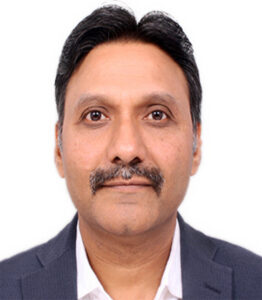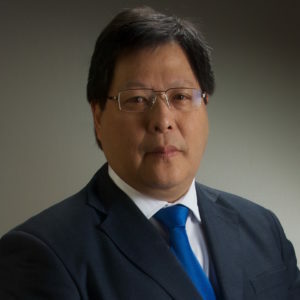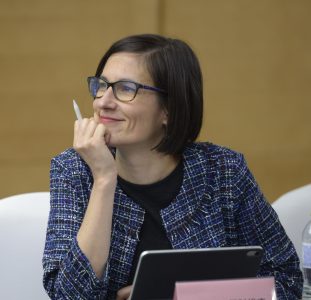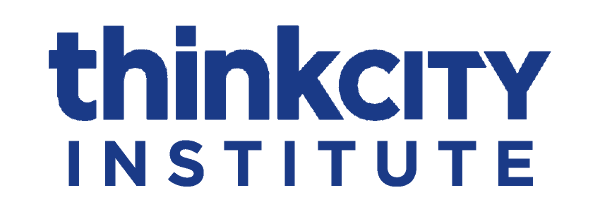Sustainable Urban Planning and Development
Masterclass 1 : Governance
INTRODUCTION
High rates of urbanisation and economic growth over the past thirty years in Southeast Asia have come at the expense of the environment. Natural resources have been used in ways that are environmentally inefficient and wasteful, with dangerous consequences for air quality and climate change, while negatively impacting socio-economic equality. Municipal governments face the challenge of providing for their rapidly growing populations while under-resourced.
Sustainable development is more than achieving the SDG goals – it is a carefully planned strategy that creates an environment that will allow cities to embrace growth while using resources more efficiently.
The ISOCARP Institute and Think City Institute have partnered to develop a series of three online masterclasses on Sustainable Urban Planning and Development. This first course will take place over the first three weeks of May 2023, with one module per week and the final case study workshop in the third week. Through a number of activities, attendees are guided through the modules and equipped with knowledge and strategies that they can apply, to work towards fairer and more sustainable cities. The activities in the course are divided between individual and group work.
COURSE OVERVIEW
The first course, Governance, explores decision-making processes in urban leadership and design, focusing on the opportunities and challenges of urban governance. The course touches on topics of policy scale, governing cities in inclusive manners, and involving urban populations in decision-making. Three sessions will explore each of these topics, with guest lecturers providing their expertise in comprehensive lectures and tutorials. The module will culminate in a final case study workshop, focusing on a real urban challenge.
Topic Info
Topic: Barriers between local & national sustainable urban development
Module 1 revolves around ideas of multi-level governance in South-East Asian urban management. Bridging gaps between national and local policy making is often a major challenge and can be difficult to navigate, with many barriers creating road blocks for governors. This module explores the intricacies of such scalar relationships, explaining how to understand, address and utilise links between local and national urban development.
Topic: Inclusive urban planning
Module 2 explores ideas of inclusivity in the design of urban spaces, considering the variety of people, animals and plants that co-exist in South-East Asian cities. Inclusivity means considering who spaces are deigned for, who is able to engage with urban planning decisions and who is left out of metropolitan design. This ranges from the many different people in urban populations to the elements of the natural world that exist in urban spaces. Understanding how to plan inclusivity works towards building inhabitable, fair and beautiful cities.
Topic: Citizen engagement in sustainable urban development
In Module 3, the engagement of citizens in urban decision-making processes is dived into. In many ways a city is made by its inhabitants. They are the life force of the city. Recent years have seen an increase in the involvement of citizens in decision-making processes, with new methods arising to develop mutually beneficial processes of engagement, understanding and change. This module explores the how and why of citizen engagement, considering the benefits and methods of expanded participatory processes.
The Governance course culminates in a final case study workshop in which the contents of modules 1-3 are related to a real life situation. The case looks at waste management in Jakarta, Indonesia, considering different national and regional policy interventions, organised community-based systems and informal waste interventions. The case demonstrates the complexity of many systems in urban spaces and the challenges and opportunities that exist in trying to compliment and improve such systems.
The case of dispersed waste management in Jakarta provides a perfect means to explore an urban challenge where many moving parts interact. The case study will involve the design of action plans to tackle specific challenges, acknowledging national and regional policies, the range of involved stakeholders, and the need to develop fair solutions.
COURSE STRUCTURE
| Component | Description | Involved | Duration |
|---|---|---|---|
| Self-Study | Self-study material will be delivered to attendees, prioritising multi-media formats (limited reading). Set material will relate to the case study for the course and is understandable. It should take approx. 60 mins to cover. A short individual assignment is given to attendees, based on the material and linking to the group meeting. This should take no longer than 30 mins. | Attendees only | 90 mins |
| Group Meeting | Attendees attend a session in their study groups, with a moderator. Self-study assignments and material will be discussed, questions answered and relevant preparation made for the lecture and tutorial. | Attendees and moderators* | 40 mins |
| Lecture | For each module, the guest lecturer will deliver a lecture with an accompanying presentation, exploring their sub-topic. Lectures will focus on useful information for contexts at hand and material will be developed in collaboration with moderators. | Attendees, moderators, guest lecturers | 45 mins |
| Tutorial | Immediately following each module lecture, a tutorial will be held by moderators and guest lecturers, in which attendees will work in their study groups to complete tasks based on the topics covered in the lecture. These tasks will be designed between the lecturer and moderators and scored according to 3.1. | Attendees, moderators, guest lecturers | 45 mins |
ABOUT THE COURSE FACILITATORS

Prakash Kamtam is an independent consultant with over 26 years of experience working with UN bodies, multi-lateral organisations and the public sector in the areas of smart cities, digital transformation and disaster management. Prakash has worked on a large range of urban planning and development projects and brings considerable experience of projects that span local and national decision-making.

Nicholas You has over 30 years in strategic planning, knowledge management, networking systems, culture change, innovative business models, and governance. Nicholas’ experience in sustainable urban development roles positions him well to take on the topic of inclusivity, in pursuit of liveable and fair cities.

Milena Ivkovich is an architect, urban planner and civic participation innovator specialised in place-led participation in urban design. She combines many years of experience in participation and placemaking, with an elaborate knowledge of urban form and development in South-East Asia. Milena’s work places her perfectly to explore the topic of citizen engagement in sustainable urban development.
TIMELINE
| Course Part | Component | Date |
|---|---|---|
| Module 1: Bridging Levels | Group meeting 1 | 01.05.23 – 03.05.23 |
| Lecture 1 | 03.05.23-05.05.23 | |
| Tutorial 1 | ||
| Module 2: Embracing Variety | Group meeting 2 | 08.05.23-10.05.23 |
| Lecture 2 | 10.05.23-12.05.23 | |
| Tutorial 2 | ||
| Module 3: Working Together | Group meeting 3 | 15.05.23-16.05.23 |
| Lecture 3 | 16.05.23-18.05.23 | |
| Tutorial 3 | ||
| Case Study | Case study workshop | 18.05.23-19.05.23 |
CERTIFICATION
All attendees that complete the course will be provided with a certificate of completion and an alumni-book. The alumni-book will contain photos of attendees, contact information and a memorable moment from the course for each attendee. The purpose of the book is to facilitate connection between attendees after the course ends.
Members of the group that score the highest in the case study workshop and tutorial assignments, combined, will also be awarded a certificate with distinction. This distinction will apply to all group members and is determined by moderators, considering the scores of each group throughout the course.
FEES
Course Fees: USD499
*early bird USD399 if registration is before 15 April
REGISTRATION
- APPLY NOW by filling out the application form HERE.
- For any further inquiries, drop us an email at duncan.cave@thinkcity.com.my
Upcoming Sustainable Urban Planning and Development Masterclasses
Continue your journey on Sustainable Development and Planning with our upcoming masterclasses.
Masterclass 2: Urban environment June 2023
- Promoting healthy cities (built environment & healthy communities)
- Urban waste management & the circular economy
- Energy transitions and carbon-neutrality in cities OR Greening & nature-based solutions to support quality of life and enhance urban biodiversity [tbc]
Masterclass 3 : Strategic planning July 2023
- Land use planning and management as a means of promoting compact, mixed-used, and transit-oriented development (TOD)
- Redesigning urban infrastructure, public spaces and facilities to adapt to climate change [including heritage issues]
- Innovative approaches to housing for low-income and vulnerable groups

